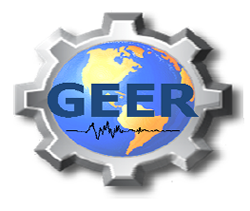 The National Science Foundation-sponsored Geo-engineering Extreme Events Reconnaissance (GEER) team is traveling to Christchurch, New Zealand to document the effects of the Magnitude 6.3 earthquake that occurred on February 22, 2011. GEER teams focus on documenting geotechnical effects of extreme events as part of the U.S. National Earthquake Hazards Reduction Program (NEHRP).
The National Science Foundation-sponsored Geo-engineering Extreme Events Reconnaissance (GEER) team is traveling to Christchurch, New Zealand to document the effects of the Magnitude 6.3 earthquake that occurred on February 22, 2011. GEER teams focus on documenting geotechnical effects of extreme events as part of the U.S. National Earthquake Hazards Reduction Program (NEHRP).
Professor Russell Green, Charles E. Via, Jr. Department of Civil and Environmental Engineering, Virginia Tech, is leading the investigation of the earthquake’s geotechnical impacts. Other Team members are: Mr. John Allen, TRI Environmental, Inc., Dr. Glenn Rix, Georgia Tech, Mr. Donald Wells, AMEC Geomatrix, Dr. Thomas O’Rourke, Cornell University, Dr. Aaron Bradshaw, University of Rhode Island, and Mr. Clinton Wood, University of Arkansas. Dr. Green, Mr. Allen, and Dr. O’Rourke were also on the previous GEER Team that investigated the September 4th, 2010, Magnitude 7.1 Darfield earthquake in New Zealand. The US GEER Team members will work in close collaboration with their New Zealand colleagues from the University of Canterbury and the University of Auckland. Additionally, the GEER Team is coordinating its efforts with teams organized by the Earthquake Engineering Research Institute (EERI) and ASCE Technical Committee on Lifeline Earthquake Engineering (TCLEE).
Advancing earthquake-resistant design requires that we understand what happened during this significant earthquake. It is critically important, because extreme events engineering is an experience-driven field. Immediately following the occurrence of an event, perishable data that can be used to advance our understanding must be systematically collected. Field observations are particularly important in the field of geo-engineering, because it is difficult to replicate in the laboratory soil deposits built by nature over thousands of years. Documenting and sharing the key lessons learned from major events around the world contributes significantly to advancing research and practice in engineering.
PLAN
The GEER Team members have been in close contact with engineers and scientists already in Christchurch, NZ, which will help focus the Team’s efforts upon their arrival. The main body of the GEER Team will be arriving in Christchurch on Tuesday, March 1st, at which time the Team will work with their New Zealand colleagues to perform field investigations. The Team will be working in the field until March 6th, with the initial plan to focus efforts on: building foundation response, liquefaction and other ground failures, performance of bridges and other lifelines, performance of port facilities, and slope failures.
CLOSURE
Additional information is available by contacting the GEER Steering Committee Chair, Professor Jonathan Bray, Ph.D., P.E. of UC Berkeley at +1 510 642 9843 or bray@ce.berkeley.edu. Information on GEER is available at http://www.geerassociation.org/.











